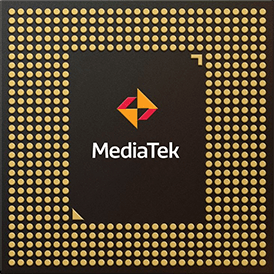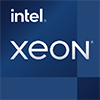
MediaTek Dimensity 820 Benchmark, Test and specs
Last updated:
The MediaTek Dimensity 820 is a 8 core processor. It can process 8 threads concurrently and is based on the 1. gen of the Mediatek Dimensity series. The processor was released in Q2/2020. The MediaTek Dimensity 820 scores 646 points with one CPU core in the Geekbench 5 benchmark. When using all CPU cores, the result is 2,432 points.

| Name: | MediaTek Dimensity 820 |
|---|---|
| Family: | Mediatek Dimensity (36) |
| CPU group: | MediaTek Dimensity 820 (1) |
| Architecture: | Cortex-A76 / Cortex-A55 |
| Segment: | Mobile |
| Generation: | 1 |
| Predecessor: | -- |
| Successor: | -- |
CPU Cores and Base Frequency
The 8 CPU cores of the MediaTek Dimensity 820 clock with 2.60 GHz. The number of CPU cores and the clock frequency of the processor are largely responsible for the overall performance.
| CPU Cores / Threads: | 8 / 8 |
|---|---|
| Core architecture: | hybrid (big.LITTLE) |
| A-Core: | 4x Cortex-A76 |
| B-Core: | 4x Cortex-A55 |
| Hyperthreading / SMT: | No |
|---|---|
| Overclocking: | No |
| A-Core Frequency: | 2.60 GHz |
| B-Core Frequency: | 2.00 GHz |
Internal Graphics
With the ARM Mali-G57 MP5, the MediaTek Dimensity 820 has an build in graphic solution. It has 5 SM processors, which have a total of 80 texture shaders. The iGPU not only enables games, but also significantly accelerates video playback.
| GPU name: | ARM Mali-G57 MP5 |
|---|---|
| GPU frequency: | 0.90 GHz |
| GPU (Turbo): | No turbo |
| Compute units: | 5 |
| Shader: | 80 |
| Hardware Raytracing: | No |
| Release date: | Q2/2020 |
| Max. displays: | 2 |
|---|---|
| Generation: | Vallhall 1 |
| Direct X: | 12 |
| Technology: | 7 nm |
| Max. GPU Memory: | 4 GB |
| Frame Generation: | No |
Hardware codec support
Processors that have an integrated graphics can play videos faster and more efficiently. This can have a positive effect on the battery life of notebooks, for example.
| h265 / HEVC (8 bit): | Decode / Encode |
|---|---|
| h265 / HEVC (10 bit): | Decode / Encode |
| h264: | Decode / Encode |
| VP8: | Decode / Encode |
| VP9: | Decode / Encode |
| AV1: | Decode |
|---|---|
| AVC: | Decode / Encode |
| VC-1: | Decode / Encode |
| JPEG: | Decode / Encode |
Memory & PCIeThe MediaTek Dimensity 820 supports up to 16 GB memory in up to 2 (Dual Channel) memory channels. This results in a maximum memory bandwidth of 17.2 GB/s. |
|
| Memory type: | Memory bandwidth: |
|---|---|
| LPDDR4X-4266 | 17.2 GB/s |
| Max. Memory: | 16 GB |
| Memory channels: | 2 (Dual Channel) |
| ECC: | No |
| PCIe: | |
| PCIe Bandwidth: | -- |
Thermal ManagementWith the TDP, the processor manufacturer specifies the cooling solution required for the processor. The MediaTek Dimensity 820 has a TDP of . |
|
|---|---|
| TDP (PL1 / PBP): | |
| TDP (PL2): | -- |
| TDP up: | -- |
| TDP down: | -- |
| Tjunction max.: | -- |
Technical details
The MediaTek Dimensity 820 has a 0.00 MB large cache. The processor is manufactured in 7 nm. Modern production increases the efficiency of the processor.
| Technology: | 7 nm |
|---|---|
| Chip design: | Chiplet |
| Socket: | -- |
| L2-Cache: | -- |
| L3-Cache: | -- |
| AES-NI: | No |
| Operating systems: | Android |
| Virtualization: | None |
|---|---|
| Instruction set (ISA): | Armv8-A (64 bit) |
| ISA extensions: | -- |
| Release date: | Q2/2020 |
| Release price: | -- |
| Part Number: | MT6875 |
| Documents: | Technical data sheet |
Rate this processor
Benchmark results

The benchmark results for the MediaTek Dimensity 820 have been carefully checked by us. We only publish benchmark results that have been created by us or that have been submitted by a visitor and then checked by a team member. All results are based on and fullfill our benchmark guidelines.
Geekbench 5, 64bit (Single-Core)
Geekbench 5 is a cross plattform benchmark that heavily uses the systems memory. A fast memory will push the result a lot. The single-core test only uses one CPU core, the amount of cores or hyperthreading ability doesn't count.

|
Intel Core i3-3220
2C 4T @ 3.30 GHz |
||

|
Intel Xeon E7-4880 v2
15C 30T @ 3.10 GHz |
||

|
MediaTek Kompanio 820
8C 8T @ 2.20 GHz |
||
|
|
MediaTek Dimensity 820
8C 8T @ 2.60 GHz |
||

|
Samsung Exynos 880
8C 8T @ 2.00 GHz |
||

|
Intel Core i5-3210M
2C 4T @ 3.10 GHz |
||

|
Qualcomm Snapdragon 750G
8C 8T @ 2.20 GHz |
||
Geekbench 5, 64bit (Multi-Core)
Geekbench 5 is a cross plattform benchmark that heavily uses the systems memory. A fast memory will push the result a lot. The multi-core test involves all CPU cores and taks a big advantage of hyperthreading.

|
Intel Core i5-6500T
4C 4T @ 2.80 GHz |
||

|
Intel Core i5-1034G1
4C 8T @ 3.30 GHz |
||

|
Intel Core i7-2720QM
4C 8T @ 2.20 GHz |
||
|
|
MediaTek Dimensity 820
8C 8T @ 2.60 GHz |
||

|
MediaTek Dimensity 1000C
8C 8T @ 2.00 GHz |
||

|
AMD FX-8150
8C 8T @ 4.20 GHz |
||
|
|
HiSilicon Kirin 820 5G
8C 8T @ 2.36 GHz |
||
Geekbench 6 (Single-Core)
Geekbench 6 is a benchmark for modern computers, notebooks and smartphones. What is new is an optimized utilization of newer CPU architectures, e.g. based on the big.LITTLE concept and combining CPU cores of different sizes. The single-core benchmark only evaluates the performance of the fastest CPU core, the number of CPU cores in a processor is irrelevant here.

|
Intel Core i5-4460T
4C 4T @ 2.70 GHz |
||

|
Intel Core m5-6Y57
2C 4T @ 2.80 GHz |
||

|
Intel Xeon D-1527
4C 8T @ 2.70 GHz |
||
|
|
MediaTek Dimensity 820
8C 8T @ 2.60 GHz |
||

|
Intel Core i5-4300U
2C 4T @ 2.90 GHz |
||

|
Intel Xeon E5-2667 v2
8C 16T @ 4.00 GHz |
||

|
Qualcomm Snapdragon 750G
8C 8T @ 2.20 GHz |
||
Geekbench 6 (Multi-Core)
Geekbench 6 is a benchmark for modern computers, notebooks and smartphones. What is new is an optimized utilization of newer CPU architectures, e.g. based on the big.LITTLE concept and combining CPU cores of different sizes. The multi-core benchmark evaluates the performance of all of the processor's CPU cores. Virtual thread improvements such as AMD SMT or Intel's Hyper-Threading have a positive impact on the benchmark result.

|
Intel Core i3-8109U
2C 4T @ 3.20 GHz |
||

|
Intel Core i7-3740QM
4C 8T @ 2.70 GHz |
||

|
Intel Core i7-3820QM
4C 8T @ 2.70 GHz |
||
|
|
MediaTek Dimensity 820
8C 8T @ 2.60 GHz |
||

|
MediaTek Dimensity 7050
8C 8T @ 2.60 GHz |
||

|
MediaTek Dimensity 1080
8C 8T @ 2.60 GHz |
||

|
Intel Core i5-7260U
2C 4T @ 3.40 GHz |
||
iGPU - FP32 Performance (Single-precision GFLOPS)
The theoretical computing performance of the internal graphics unit of the processor with simple accuracy (32 bit) in GFLOPS. GFLOPS indicates how many billion floating point operations the iGPU can perform per second.

|
AMD GX-217GI
AMD Radeon R6E @ 0.76 GHz |
||

|
AMD A8-7670K
AMD Radeon R7 - 384 (Kaveri) @ 0.76 GHz |
||

|
AMD A10-9620P
AMD Radeon R5 - 384 (Bristol Ridge) @ 0.76 GHz |
||
|
|
MediaTek Dimensity 820
ARM Mali-G57 MP5 @ 0.90 GHz |
||

|
Intel Core i3-14100T
Intel UHD Graphics 730 @ 1.50 GHz |
||

|
Intel Core i3-14100
Intel UHD Graphics 730 @ 1.50 GHz |
||

|
Intel Core i3-13100TE
Intel UHD Graphics 730 @ 1.50 GHz |
||
AnTuTu 9 Benchmark
The AnTuTu 9 benchmark is very well suited to measuring the performance of a smartphone. AnTuTu 9 is quite heavy on 3D graphics and can now also use the "Metal" graphics interface. In AnTuTu, memory and UX (user experience) are also tested by simulating browser and app usage. AnTuTu version 9 can compare any ARM CPU running on Android or iOS. Devices may not be directly comparable when benchmarked on different operating systems.
In the AnTuTu 9 benchmark, the single-core performance of a processor is only slightly weighted. The rating is made up of the multi-core performance of the processor, the speed of the working memory, and the performance of the internal graphics.
In the AnTuTu 9 benchmark, the single-core performance of a processor is only slightly weighted. The rating is made up of the multi-core performance of the processor, the speed of the working memory, and the performance of the internal graphics.

|
Qualcomm Snapdragon 778G
8C 8T @ 2.40 GHz |
||

|
Apple A10X Fusion
6C 6T @ 2.36 GHz |
||

|
MediaTek Dimensity 1080
8C 8T @ 2.60 GHz |
||
|
|
MediaTek Dimensity 820
8C 8T @ 2.60 GHz |
||

|
MediaTek Dimensity 930
8C 8T @ 2.20 GHz |
||

|
MediaTek Dimensity 920
8C 8T @ 2.50 GHz |
||

|
MediaTek Dimensity 900
8C 8T @ 2.40 GHz |
||
AnTuTu 8 Benchmark
The AnTuTu 8 Benchmark measures the performance of a SoC. AnTuTu benchmarks the CPU, GPU, Memory as well as the UX (User Experience) by simulating browser and app usage. AnTuTu can benchmark any ARM CPU that runs under Android or iOS. Devices may not be directly compareable if the benchmark has been performed under different operating systems.
In the AnTuTu 8 benchmark, the single-core performance of a processor is only slightly weighted. The evaluation consists of the multi-core performance of the processor, the speed of the RAM and the performance of the internal graphics.
In the AnTuTu 8 benchmark, the single-core performance of a processor is only slightly weighted. The evaluation consists of the multi-core performance of the processor, the speed of the RAM and the performance of the internal graphics.

|
MediaTek Dimensity 1000C
8C 8T @ 2.00 GHz |
||

|
Apple A12 Bionic
6C 6T @ 2.49 GHz |
||
|
|
HiSilicon Kirin 980
8C 8T @ 2.60 GHz |
||
|
|
MediaTek Dimensity 820
8C 8T @ 2.60 GHz |
||
|
|
HiSilicon Kirin 985 5G
8C 8T @ 2.58 GHz |
||

|
MediaTek Kompanio 820
8C 8T @ 2.20 GHz |
||

|
Samsung Exynos 9820
8C 8T @ 2.70 GHz |
||
Estimated results for PassMark CPU Mark
Some of the CPUs listed below have been benchmarked by CPU-monkey. However the majority of CPUs have not been tested and the results have been estimated by a CPU-monkey’s secret proprietary formula. As such they do not accurately reflect the actual Passmark CPU mark values and are not endorsed by PassMark Software Pty Ltd.

|
AMD Athlon 220GE
2C 4T @ 3.40 GHz |
||

|
Intel Core i3-1115GRE
2C 4T @ 3.90 GHz |
||

|
Intel Core i7-2820QM
4C 8T @ 2.30 GHz |
||
|
|
MediaTek Dimensity 820
8C 8T @ 2.60 GHz |
||

|
Intel Pentium Gold G6505
2C 4T @ 4.20 GHz |
||

|
Intel Pentium Gold G6600
2C 4T @ 4.20 GHz |
||

|
Intel Core i3-6320
2C 4T @ 3.90 GHz |
||
Benchmarks

Geekbench 5 (SC)
2,488 entries
2,488 entries

Geekbench 5 (MC)
2,461 entries
2,461 entries

Geekbench 6 (SC)
1,755 entries
1,755 entries

Geekbench 6 (MC)
1,703 entries
1,703 entries

FP32 SP (iGPU)
2,042 entries
2,042 entries

AnTuTu 9 Benchmark
90 entries
90 entries

AnTuTu 8 Benchmark
118 entries
118 entries

PassMark CPU-Mark
2,392 entries
2,392 entries
Popular comparisons
back to index





